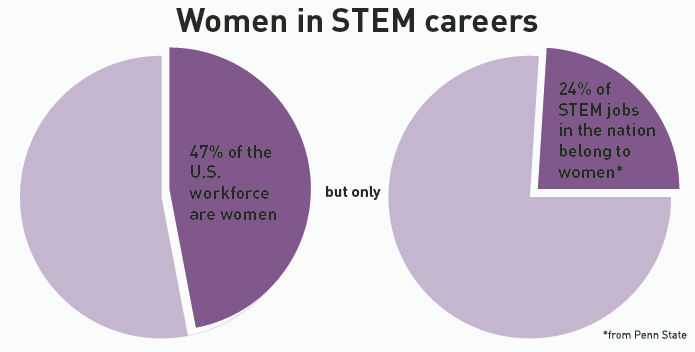McLaughlin: Anti-rape activists focus on wrong preventative measures
March 7, 2014
Sally Mason, president of the University of Iowa, has come under a lot of fire in February for comments regarding sexual assault. With eight cases of sexual assault reported — many assaults go unreported — around the Iowa campus, Mason addressed the issue in her monthly interview with the campus newspaper The Daily Iowan.
Mason, when talking about the university’s policy on sexual assault, said, “The goal would be to end that, to never have another sexual assault. That’s probably not a realistic goal just given human nature, and that’s unfortunate, but the more we understand about it, the better we are at trying to handle it and help people get through these difficult situations.”
Critics were very quick to react to Mason’s comment. But detractors misconstrued what she really meant when she used the words “human nature.” Mason understands the flaw in her statement and was sincere about the situation. Mason publicly apologized in regards to her comments being hurtful and held a listening session for students to request ideas to reform policies, there she she shared her own sexual assault story.
People may disagree with the logic there, but think about how many people drink underage. Iowa is ranked the fifth highest state in the U.S. in underage drinking and underage binge drinking. In high school and college, we are indirectly told not to drink (D.A.R.E., AlcoholEdu). This is a less extreme example, but the logic applies to heavier crimes such as rape or murder. Most everyone knows that rape is bad, but does knowing that stop a rapist from committing sexual assault?
The popular solution anti-rape movement activists preach is to teach men not to rape. Ads on the CyRide and protest signs telling men to not rape isn’t going to persuade someone who is mentally sick enough to commit such heinous crimes not to touch the unconscious girl at a party.
Not all feminist/protesters focus on changing “rape culture” though. Many do actively try and make a difference in legislation. The university protesters did by demanding a zero tolerance policy on sexual assault with an improved report and response time and even creating their own website to petition for reform. This is a step forward.
Protestors are concerned about the alarming focus on victims in the case. Feminists find it deplorable that universities choose to inform possible victims how to prevent getting raped. The problem is that the only sensible way of controlling and preventing sexual assault on campus is to focus on the people who could be or are victims and the bystanders who could stop a sexual assault from happening.
Colleges need to start by pushing a heavier policy cracking down on sexual assault. Universities need to take the process of handling sexual assaults and bump it up to the next level. Colleges have to let victims know that they have a place to go to that will take care of them with the utmost importance and respect. Quick and speedy response encourages victims to report their cases.
Iowa State (who had 13 reported assaults in 2013) is taking steps toward improving their sexual assault response. Currently, Iowa State’s Sexual Misconduct/Sexual Assault Policy offers several support groups and ways for victims to report their cases, along with a lot of information.
Currently, students had to go through Title IX training (late January this year) to know how to deal with and prevent sexual assault, but how effective is a computer program forcing students to sit down with their busy schedules to take quizzes they don’t want to do in the first place?
Iowa State also needs to step up in informing their students on what can be done to help combat aggressors and prevent situations from turning into rape. Encouraging students to learn self defense, how to contact services such as free escorts when they aren’t confident enough to walk across campus alone at night or to use the buddy system.
Lastly, Iowa State should focus on informing students how they, as bystanders, can stop an assault from taking place in front of them. In a situation like that, the victim could be in a helpless state and the only person to prevent it is someone who can see the wrongdoing going on and have the courage to step up and stop the aggressor.
Stopping sexual assault completely might not be realistic, but there are ways to reduce and shed light on the situation at hand. Victims shouldn’t be scared to speak out.
















